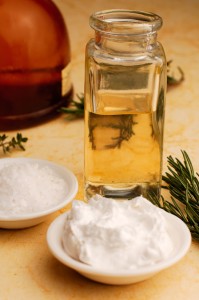 Lately, more and more of my patients have expressed an interest in using herbs for their specific health concerns. They are concerned, as am I, about side effects, as well as rising costs of prescription drugs with health care insurance issues being what they are these days.
Lately, more and more of my patients have expressed an interest in using herbs for their specific health concerns. They are concerned, as am I, about side effects, as well as rising costs of prescription drugs with health care insurance issues being what they are these days.
Herbs have been used as medicine for centuries in many cultures around the world. Traditional Chinese Medicine and Indian Ayurvedic medicine lead the way in treating illness with herbs. In fact, prior to 1930, herbal medicine was the only medicine used in America!
For the past 30 years, however, herbal, or botanical, medicine is enjoying resurgence in America. People are revisiting the healing power of all those ancient herbal formulas. Echinacea fights colds, St. John’s Wort brightens mood, chamomile settles upset stomach, and ginseng boosts energy. These herbs are so commonly known they’re sold in grocery stores!
The use of medicinal herbs is a vast subject, so I’d like to touch on some of the most common herbs and their uses.
Herbs for General Health
Especially in men and women over age 40, along with a healthy diet, regular exercise, and enough restorative sleep, taking at least 1 of these herbs can help keep you healthy in general:
- Garlic – antioxidant, antibiotic, and cholesterol reducer, can help prevent heart disease.
- Green tea – an all-around powerhouse antioxidant, can lower cholesterol and help prevent mouth and stomach cancers. Drink 2-3 cups a day without milk or cream.
- Turmeric – (yellow mustard ingredient) long used in Indian Ayurvedic medicine, an excellent antioxidant which lower cholesterol and is said to prevent cancer.
- Olive Leaf Extract – anti-inflammatory, immune system booster, kills viruses and bacteria that can cause illness.
Herbs for Men’s Health Issues
There are several herbs that are beneficial to men’s specific health concerns such as prostate and impotence issues. Here are a few of them:
- Saw palmetto/beta sitosterol – one of the most popular herbs, treats BPH, benign prostatic hypertrophy, by shrinking the enlarged prostate and relieving urinary problems.
- Gingko biloba – helps increase blood flow throughout the body which can alleviate impotence and help cognitive brain function and circulatory issues.
- Muira puama – stimulates libido (both male and female), treats erectile dysfunction, and balances hormones.
- Tribulus – stimulates testosterone production, addressing impotence and libido.
Herbs for Women’s Health Issues
Women’s specific health concerns such as painful menstruation, menopause, libido and infertility have been treated with herbs for centuries. Recently, traditional medical doctors have turned to safe, herb-derived bioidentical hormone replacement to treat symptoms of menopause. The following are herbal estrogen and progesterone sources that come from:
- Black cohosh – full of natural plant estrogens, good for menopause symptoms and PMS.
- Wild Yam – contains isoflavones, treats menopause symptoms, and maintains bone strength.
- Dong Quai – for menopause, treats hot flashes, vaginal dryness, and weak bladder tone.
- Red Clover – like soy, contains isoflavones, treats menopause symptoms.
The Big Three and Herbs
In the United States, the highest rates of illness are from cancer, diabetes, and heart disease. Let me share with you some herbs that have shown a lot of promise in research studies to specifically address these conditions:
- Sheep Sorrel – Cancer. Noted for its tumor shrinking, anti-metastasizing properties.
- Green Tea Extract – Cancer. Contains ECGC, an antioxidant that neutralizes free radicals that damage healthy cells. Slows/prevents the rapid cell replication of cancer.
- Turmeric – Cancer. Contains curcumin, boosts immune system, and prevents tumor growth.
- Cinnamon – Diabetes. ¼ to 1 tsp sprinkled on food, can control insulin spikes. Also helps lower high blood pressure.
- Banaba – Diabetes. An herb from the Philippines extensively studied for diabetes. Like cinnamon, has insulin-like activity that helps maintain normal blood sugar.
- Ampalaya (bitter melon) – Diabetes. Also extensively researched, the favorite treatment for diabetes in India, Asia, Africa. Said to stimulate beta cell production in the pancreas that helps the body’s natural production of insulin.
- Valerian – Heart/high blood pressure. Relaxes you, lowers blood pressure, and aids sleep.
- Alfalfa and Garlic – Heart/arteries. Lowers LDL cholesterol by blocking absorption and preventing oxidation into plaques or clots.
- Cayenne – Heart/circulation. Stops heart pain by rapidly increasing blood flow to the heart. It has been touted as a first aid treatment for heart attack – 1 tablespoon Cayenne in a glass of warm water drank quickly.
There you have a basic introduction to medicinal herbs. There are innumerable health conditions that herbs can be used for. However, they are not without risk. You have to take them properly as you would prescription drugs. Consult a doctor familiar with the use of herbal medicine to treat illness. They can ensure correct usage and monitor you for any possible adverse reaction.
Stay Well,
Mark Rosenberg, M.D.
